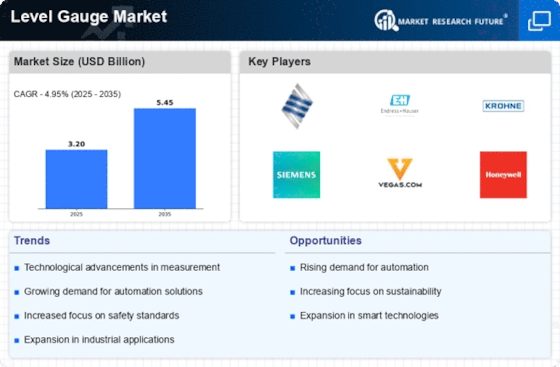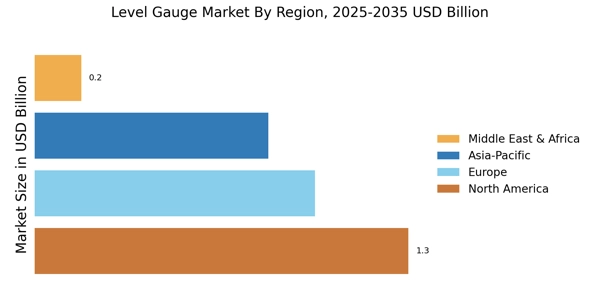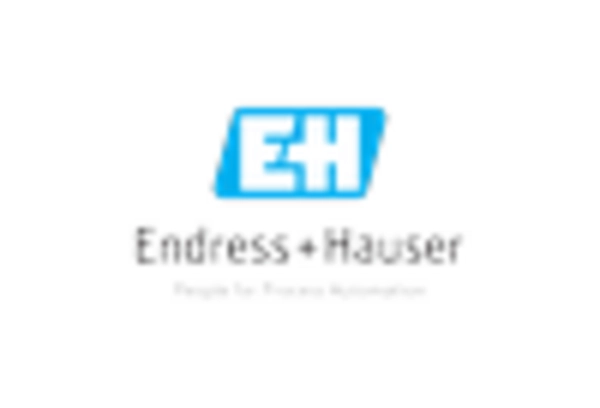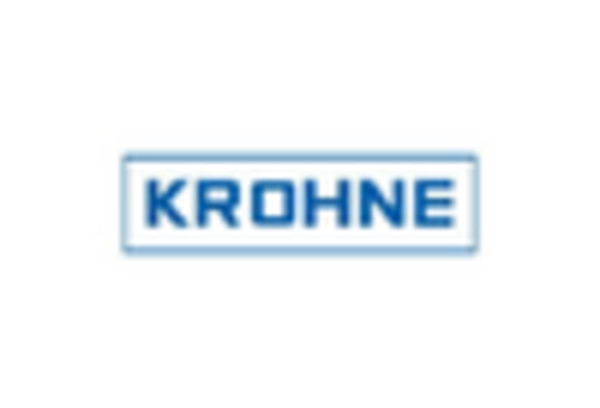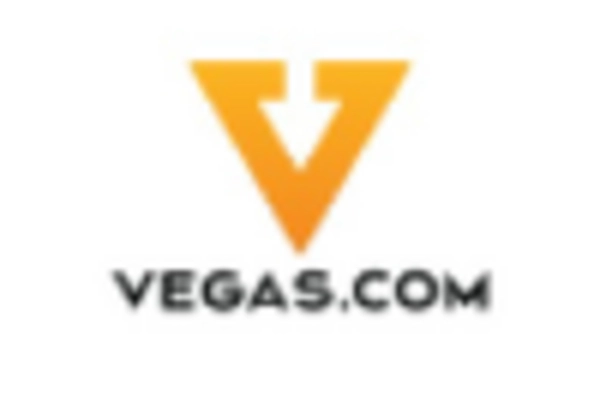Rising Demand in Oil and Gas Sector
The Level Gauge Market experiences a notable surge in demand driven by the oil and gas sector. As exploration and production activities expand, the need for accurate level measurement in storage tanks and pipelines becomes critical. The industry is projected to grow at a compound annual growth rate of approximately 5.2% over the next five years, reflecting the increasing investments in upstream and downstream operations. This growth is further fueled by the necessity for safety and efficiency in operations, where precise level gauging is paramount. Consequently, manufacturers are innovating to provide advanced level gauge solutions that meet the stringent requirements of the oil and gas industry, thereby enhancing their market presence.
Expansion of Renewable Energy Sector
The Level Gauge Market is experiencing a transformation driven by the expansion of the renewable energy sector. As countries shift towards sustainable energy sources, the demand for level gauging solutions in bioenergy and solar energy applications is increasing. Accurate level measurement is essential for the efficient operation of biogas plants and solar thermal systems. The market is projected to grow as investments in renewable energy infrastructure rise, with a focus on enhancing efficiency and reducing environmental impact. This shift not only presents opportunities for manufacturers to innovate but also aligns with global sustainability goals, thereby propelling the Level Gauge Market forward.
Growth in Water and Wastewater Management
The Level Gauge Market is poised for growth due to the increasing focus on water and wastewater management. As urbanization accelerates, the demand for efficient water management systems rises, necessitating accurate level measurement in treatment plants and storage facilities. The market is expected to grow as municipalities and industries invest in modernizing their water infrastructure. This trend is further supported by government initiatives aimed at improving water quality and sustainability. Consequently, the Level Gauge Market is likely to benefit from the rising investments in water management technologies, which emphasize the need for reliable level gauging solutions to optimize operations.
Regulatory Compliance and Safety Standards
The Level Gauge Market is significantly influenced by stringent regulatory compliance and safety standards across various sectors. Industries such as pharmaceuticals, chemicals, and food processing are subject to rigorous regulations that mandate accurate level measurement to ensure safety and quality. Compliance with these standards not only protects consumers but also enhances operational efficiency. As a result, companies are increasingly investing in high-quality level gauge systems that meet these regulatory requirements. The market is projected to see a steady growth rate as organizations prioritize safety and compliance, thereby driving demand for reliable level gauging solutions that adhere to industry standards.
Technological Advancements in Level Measurement
Technological advancements play a pivotal role in shaping the Level Gauge Market. The integration of digital technologies, such as IoT and smart sensors, enhances the accuracy and reliability of level measurement systems. These innovations allow for real-time monitoring and data analytics, which are increasingly sought after by industries such as chemicals, water treatment, and food and beverage. The market is witnessing a shift towards non-contact level measurement technologies, which are gaining traction due to their ability to minimize maintenance and operational costs. As industries continue to adopt these advanced solutions, the Level Gauge Market is expected to expand, driven by the demand for more efficient and precise measurement tools.


